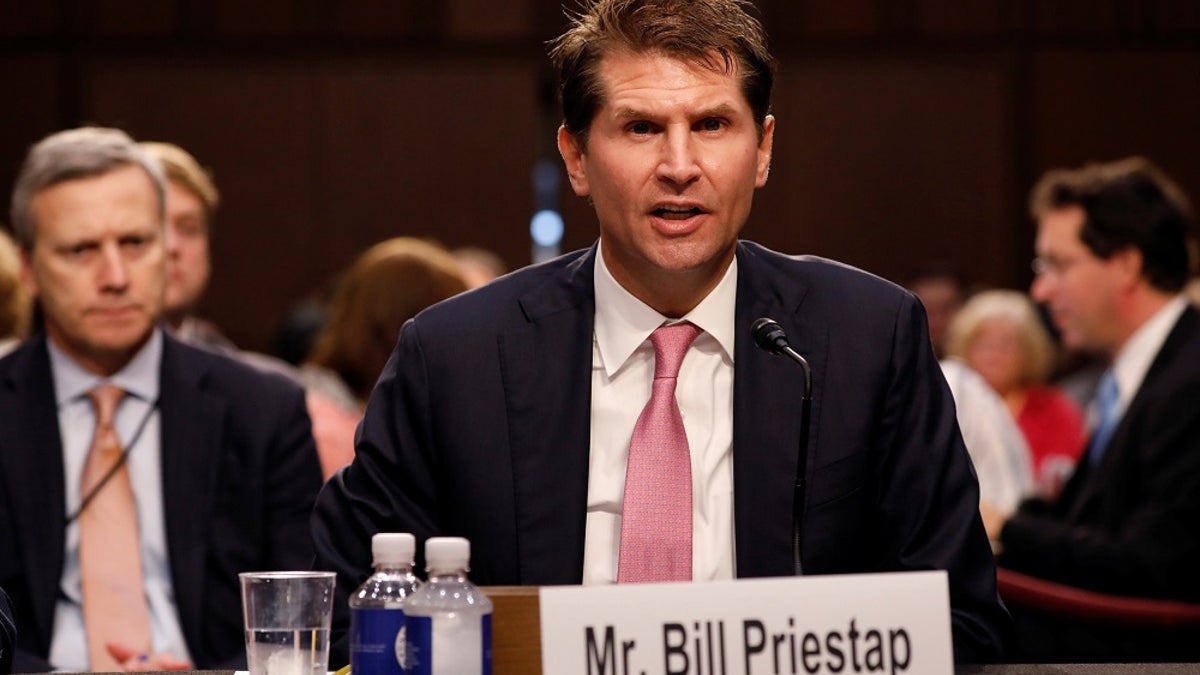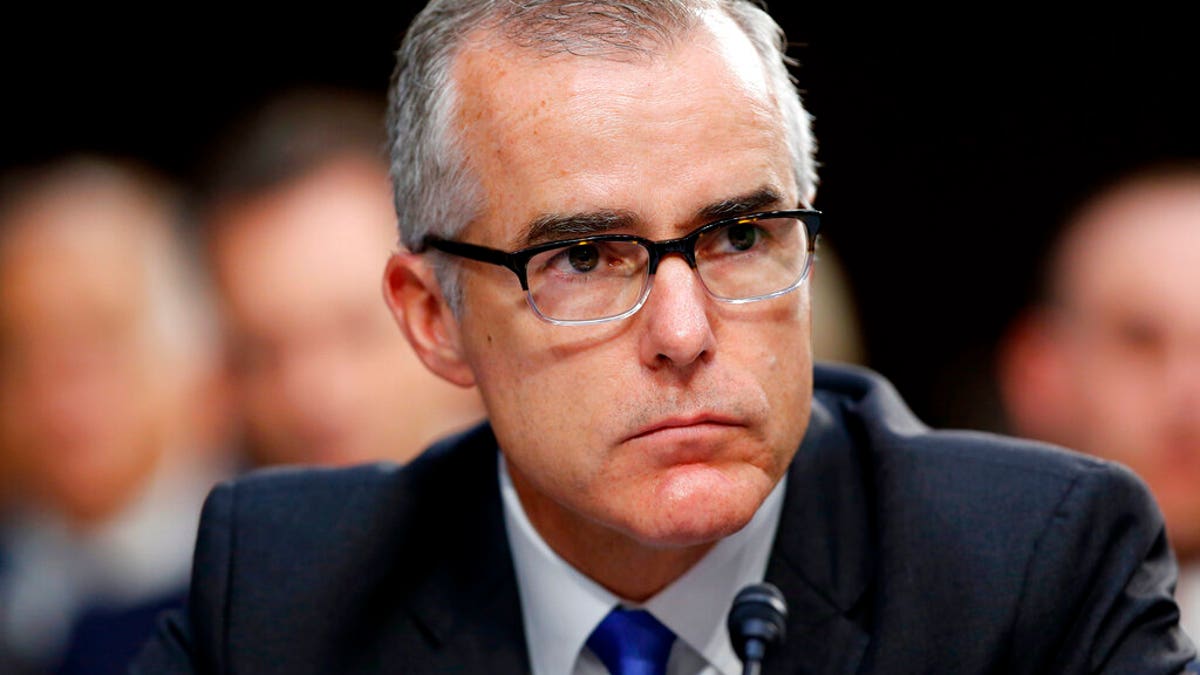Pardoning Flynn will be natural consequence of Judge Sullivan's actions: Sol Wisenberg
Sol Wisenberg thinks Judge Emmet Sullivan may be trying to force President Trump into pardoning Michael Flynn by delaying his case
Michael Flynn's attorney Sidney Powell on Tuesday filed an emergency writ of mandamus to the D.C. Circuit Court of Appeals seeking the immediate removal of Judge Emmet Sullivan from the case -- and saying that under appellate precedent set by the "Fokker Services" case, Sullivan or his replacement must dismiss the prosecution, as the Justice Department has requested.
Writs of mandamus are extraordinary remedies, which are appropriate when there has been a "usurpation of judicial power" that is "clear and indisputable" -- and, Powell argued, Sullivan's behavior fits the bill. Powell pointed in particular to Sullivan's bizarre suggestion in December 2018 that Flynn had "sold out his country" and could have been prosecuted for "treason," as well as Sullivan's misstatements on the facts of the case.
Powell also demanded the appellate court vacate Sullivan's order appointing an "amicus curiae," or "friend of the court," to argue in favor of preserving Flynn's guilty plea on one count of making false statements to the FBI during an unusual January 24, 2017 White House interview. Oral arguments are set for July 16.
The amicus appointed by Sullivan, retired federal judge John Gleeson, has openly criticized the Trump administration's handling of Flynn's case, raising concerns that he was selected to improperly bolster Sullivan's efforts to keep the Flynn case alive even though both the government and defendant want it dismissed. (In 2013, Gleeson himself held that “the government has near-absolute power under [the Federal Rules of Criminal Procedure] to extinguish a case that it has brought" -- but he has since apparently changed his opinion.)
"Neither the Federal Rules of Criminal Procedure nor the district court’s local rules authorize amicus participation in criminal cases," Powell wrote in Tuesday's filing. "Prior to issuance of its extraordinary May 12, 2020, order, the district judge adhered scrupulously to the district court’s rules, denying some two dozen attempts by third parties to intervene or file amicus briefs in this very case."
Further, Powell cited the 2016 D.C. Circuit court case United States v. Fokker Services for the proposition that a "district court cannot deny the Government’s motion to dismiss because the judge has 'a disagreement with the prosecution’s exercise of charging authority,' such as 'a view that the defendant should stand trial' or 'that more serious charges should be brought.'"

FILE - In this Dec. 1, 2017, file photo, Michael Flynn, center, arrives at federal court in Washington. A judge set a sentencing hearing for Michael Flynn after rejecting arguments from the former Trump administration national security adviser that prosecutors had withheld evidence favorable to his case. (AP Photo/Susan Walsh, File)
Powell also said trial courts cannot second-guess the government's “conclusion that additional prosecution or punishment would not serve the public interest.” (“We are unaware … of any appellate decision that actually upholds a denial of a motion to dismiss a charge” on grounds that dismissal would not serve the “public interest,” the D.C. Circuit stated in the Fokker case.).
Sullivan, Powell argued, has not met the Fokker standard. However, Ryan Fayhee, an attorney at Hughes Hubbard & Reed who previously served as a top prosecutor and national security official at the DOJ, told Fox News the Fokker case was distinguishable.
Fokker "concerned a deferred prosecution agreement, and not a knowing and voluntary guilty plea," Fayhee said. "In that case the judge’s role was ministerial and limited to whether the Speedy Trial Act could be extended in the interest of justice; it did not consider whether the Justice Department may dismiss a case post-plea (an unprecedented and novel issue); nor whether a district court judge may initiate a contempt proceeding as is being considered here."
Fayhee added that a writ of mandamus "is exceedingly rare even to be filed, must less granted by the Court of Appeals," although he asserted that "there is a real and genuine legal issue presented here and it is possible that the Court of Appeals may ultimately side with Flynn."
In the meantime, "it is not at all unusual for a district judge to allow for an amicus brief to inform the judge’s legal analysis when the parties would otherwise be aligned," Fayhee cautioned.
Separately, Powell also cited the 1996 Supreme Court case United States v. Armstrong for the proposition that the district court must be mindful that "the presumption of regularity" applies to "prosecutorial decisions and, in the absence of clear evidence to the contrary, courts presume that [prosecutors] have properly discharged their official duties.’"
The DOJ, Powell said, had ample reason to seek the dismissal of Flynn's case, in the light of newly released exculpatory information. "Now additional facts have established he was not interviewed for a legitimate purpose, and therefore any statements he made were not 'material' under 18 U.S.C. §1001, the Government justly believes that he is not guilty of any crime," Powell wrote.
For example, explosive handwritten notes that surfaced earlier this month -- written by Priestap after a meeting with then-FBI Director James Comey and then-FBI Deputy Director Andrew McCabe, Fox News is told -- suggested that agents planned to interview Flynn at the White House on January 24, 2017 "to get him to lie, so we can prosecute him or get him fired."

In this July 26, 2017 photo, Bill Priestap, assistant director of the FBI's Counterintelligence Division, testifies during a Judiciary Committee hearing into alleged collusion between Russian and the Trump campaign. (Reuters)
In the alternative, Priestap's note suggested a possible goal was to get Flynn "to admit to breaking the Logan Act" when he spoke to Russia's then-Ambassador Sergey Kislyak during the presidential transition period.
The Logan Act has never been successfully used in a criminal prosecution and has a questionable constitutional status; it was enacted in 1799 in an era before telephones, and was intended to prevent individuals from falsely claiming to represent the United States government abroad.
Priestap's memo conspicuously surfaced only this month, even though the Justice Department and FBI had been under an obligation to turn over all relevant, potentially exculpatory materials to Flynn's legal team since February 2018. (Attorney General Bill Barr had appointed U.S. Attorney Jeff Jensen to review the DOJ's handling of the Flynn case, and Jensen apparently unearthed the documents.)
Meanwhile, top DOJ prosecutor who had repeatedly told the court that the FBI had complied with the order to turn over exculpatory materials, Brandon Van Grack, was abruptly pulled from the Flynn case after Fox News pointed out his apparent misrepresentations.
When he pleaded guilty, Powell wrote, "General Flynn could swear truthfully that he committed the acts constituting the crime with which he was charged—after all he had no duty to tell FBI line agents about missions he undertook in his capacity as Security Advisor to the President Elect—but he had to accept on faith that the questions were 'material' to a legitimate criminal investigation, even though that was not made clear to him at the time. In truth, they were not. Because the Government failed to disclose this information to the defense, General Flynn had no way of knowing that it was false."
Finally, Powell sought Sullivan's immediate removal, citing his incendiary comments from the bench in December 2018, a year after Flynn's guilty plea.
"If the Court grants the principal relief Petitioner seeks, there may not be much by way of further proceedings in the case, but there could be. Petitioner, the Government, and the appearance of justice will best be served by having another judge—one who has not implied that [Flynn] is a traitor—conduct any further proceedings in the case," the writ says.
Sullivan suggested Flynn may have committed treason, in the bizarre December 2018 courtroom outburst, and seemingly confused key details about Flynn's overseas lobbying work. More recently, Sullivan has suggested he isn't bothered by the FBI's missing FD-302 witness report of agents' January 24, 2017 White House interview with Flynn that Comey has previously said was prepared within days of the interview, as required by policy.
"[T]hings happen and documents are lost," Sullivan stated. "I mean, it just happens.”
Former FBI SWAT agent James Gagliano called that a "shockingly cavalier" reaction by Sullivan. Gagliano, who initially defended the FBI's Flynn probe, has more recently said Flynn was "railroaded," after this month's bombshell revelations.
"The district judge’s manifest confusion about the facts of this case, accusing General Flynn of treason and having 'sold out his country,' and his punitive intentions are well documented," Powell wrote. Sullivan also said he had "disdain" and "disgust" for Flynn's actions.
Specifically, also during his December 2018 outburst, Sullivan incorrectly accused Flynn of working as an agent of a foreign government "while serving as national security adviser." The only accusations against Flynn pertaining to possible Foreign Agents Registration Act (FARA) violations related to his consulting work in Turkey, well before his appointment as national security adviser. Flynn was never charged with FARA violations.
Powell continued: "The district judge’s latest actions— failing to grant the Government’s Motion to Dismiss, appointing a biased and highly-political amicus who has expressed hostility and disdain towards the Justice Department’s decision to dismiss the prosecution, and the promise to set a briefing schedule for widespread amicus participation in further proceedings—bespeaks a judge who is not only biased against Petitioner, but also revels in the notoriety he has created by failing to take the simple step of granting a motion he has no authority to deny. This is an umpire who has decided to steal public attention from the players and focus it on himself. He wants to pitch, bat, run bases, and play shortstop. In truth, he is way out in left field."
During the White House interview, Flynn told the agents "not really" when asked if he had sought to convince Kislyak not to escalate a brewing fight with the U.S. over sanctions imposed by the Obama administration, according to a later, contested FD-302 witness report prepared by the FBI weeks after the interview. Flynn also reportedly demurred when asked if he had asked Russia to veto a U.N. Security Council resolution that condemned Israel’s settlements in the West Bank.
OBAMA KNEW DETAILS OF FLYNN CASE, SHOCKING TOP DOJ OFFICIAL, DOCS SHOW
Flynn issued other apparently equivocal responses to FBI agents' questions, and at various points suggested that such conversations might have happened or that he could not recall them if they did, according to the 302. But questions remained as to the strength of the FBI's case.
"Text messages between the FBI Agents Peter Strzok and Lisa Page (Deputy FBI Director Andrew McCabe’s special counsel), revealed that, weeks after the pretextual interview, Strzok was still rewriting the 302 so completely that he struggled to 'maintain Joe [Pientka]’s voice,'" Powell wrote in Tuesday's filing, referring to one of the agents who interviewed Flynn. "Page and Strzok massaged the 302 until McCabe approved it, and it was filed as final on February 15, 2017—two days after General Flynn resigned from the White House."
On Monday night, top GOP lawmakers sought again to interview Pientka, saying the FBI was ignoring their requests.

FILE - In this June 7, 2017, file photo, then-FBI acting director Andrew McCabe listens during a Senate Intelligence Committee hearing about the Foreign Intelligence Surveillance Act, on Capitol Hill in Washington. (AP Photo/Alex Brandon, File)
Fox News previously determined that Pientka also was intimately involved in the probe of former Trump aide Carter Page, which the DOJ has since acknowledged was riddled with fundamental errors and premised on a discredited dossier that the bureau was told could be part of a Russian disinformation campaign.
Pientka was removed from the FBI's website after Fox News contacted the FBI about his extensive role in Crossfire Hurricane Foreign Intelligence Surveillance Act (FISA) matters -- a change first noticed by Twitter user Techno Fog -- but sources said Pientka remained in a senior role at the agency's San Francisco field office. The FBI told Fox News shortly before Pientka's removal from the website that reporting on his identity could endanger his life, even though he serves in a prominent senior role at the bureau.
Then-FBI Director James Comey admitted in 2018 that the Flynn interview at the White House by Strzok and Pientka didn't follow protocol, and came at his direction. He said it was "something I probably wouldn't have done or maybe gotten away with in a more... organized administration."
HOROWITZ REPORT SPOTLIGHTS LITTLE-KNOWN AGENT PIENTKA'S ROLE IN PAGE, FLYNN MATTERS
And, then-FBI Deputy Director Andrew McCabe later said the interview was "very odd" because "it seemed like [Flynn] was telling the truth" to the two agents who interviewed him. Flynn, the interviewing agents told McCabe, "had a very good recollection of events, which he related chronologically and lucidly," did not appear to be "nervous or sweating," and did not look "side to side" -- all of which would have been "behavioral signs of deception."
Further, the FBI 302 indicated that Flynn apparently was aware his communications had been monitored, and at several points he thanks the FBI agents for reminding him of some of his conversations with Russian officials. A Washington Post article published one day before Flynn's White House interview with the agents, citing FBI sources, publicly revealed that the FBI had wiretapped Flynn's calls with Kislyak and cleared him of any criminal conduct. It was unclear who leaked that information to the Post -- or why the FBI would need to question Flynn about his contacts given that the bureau had already recorded them.















































